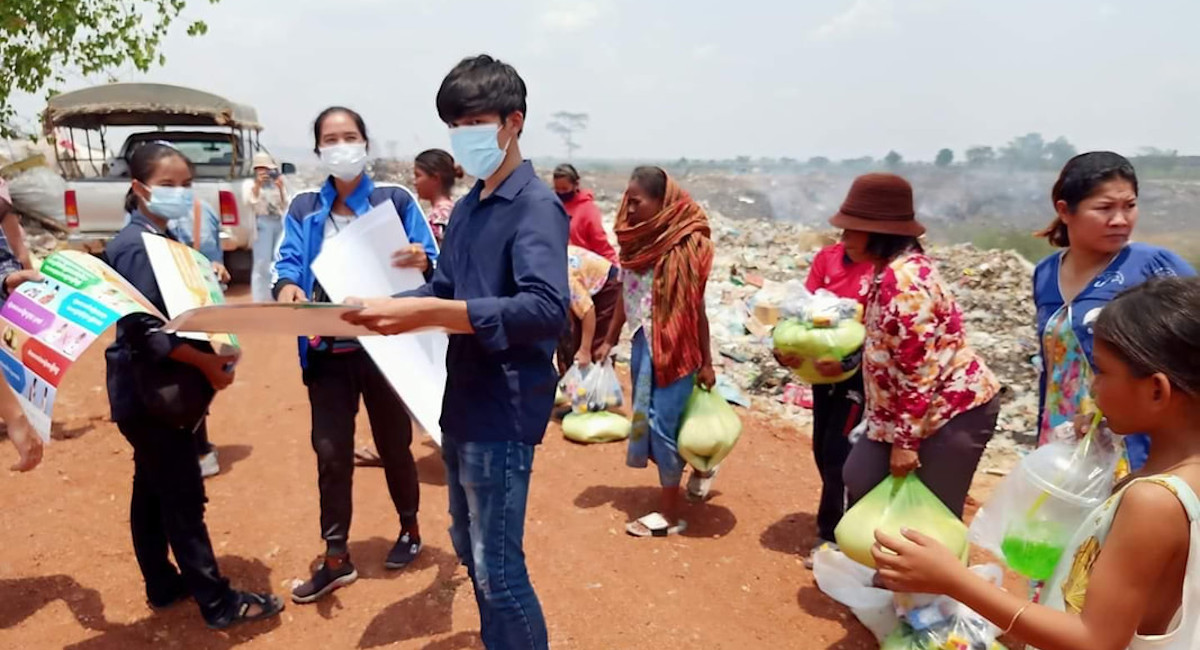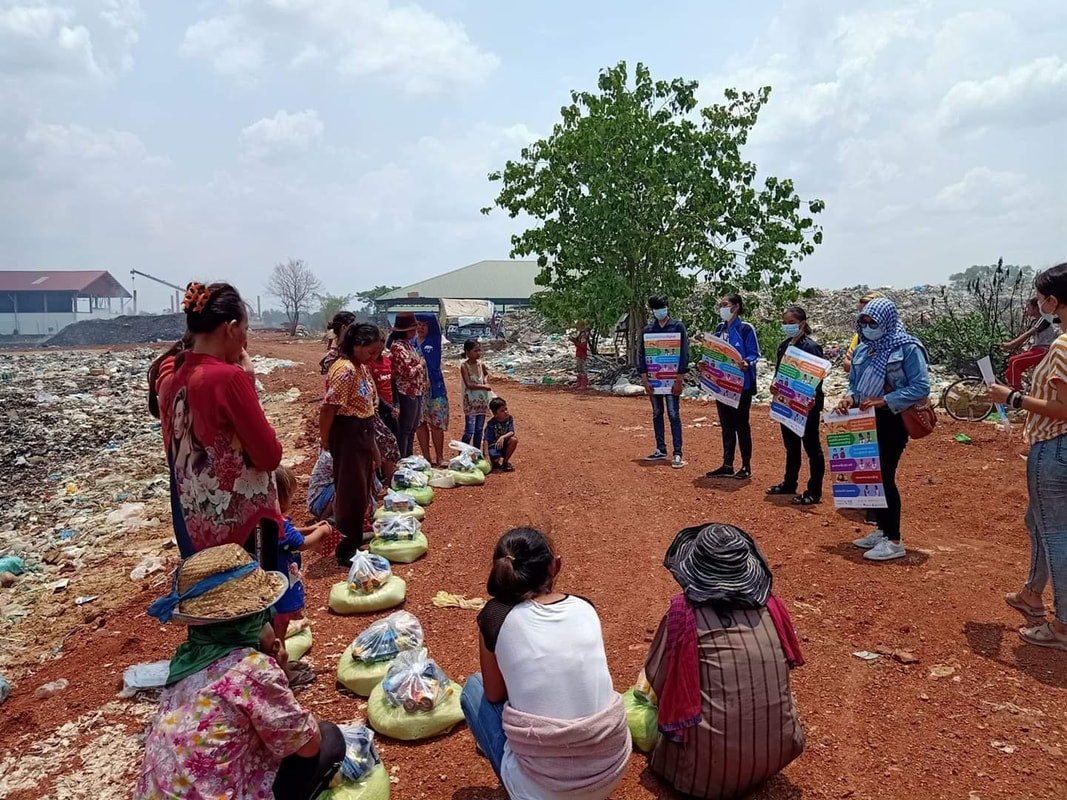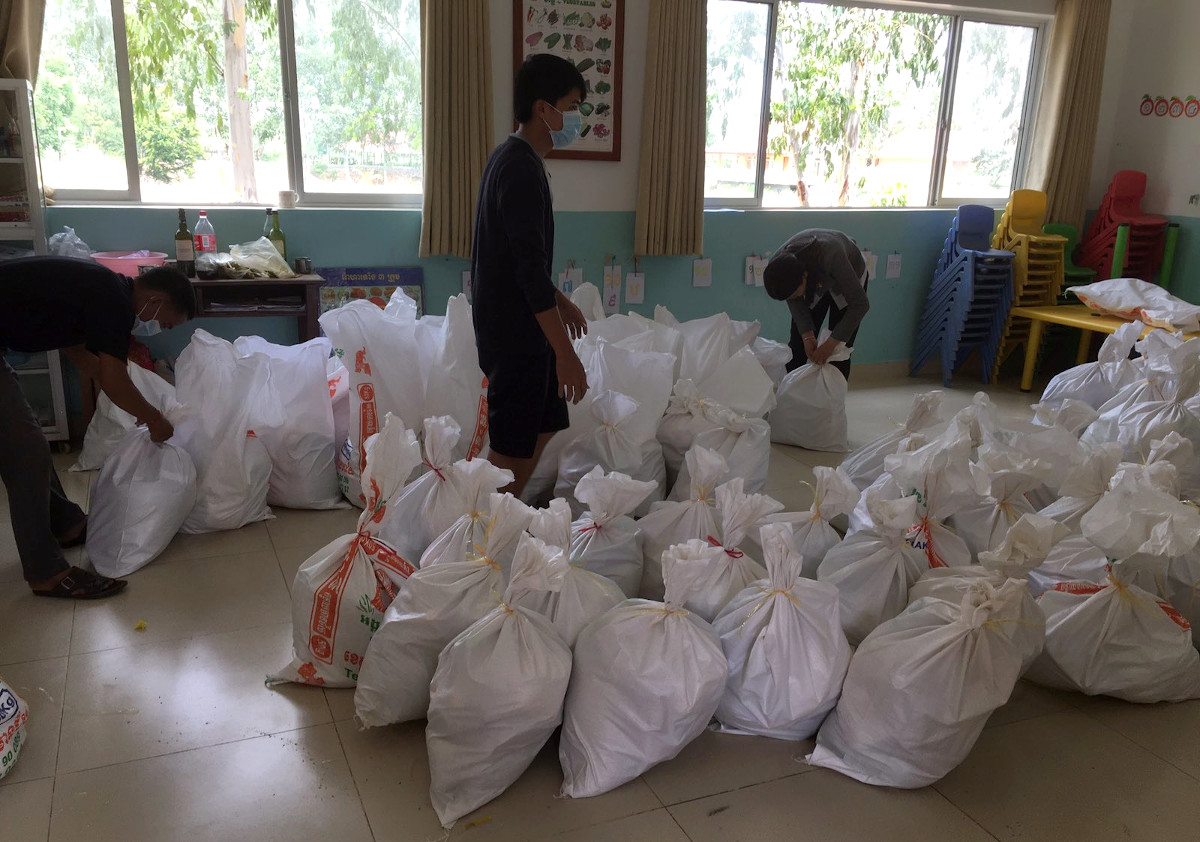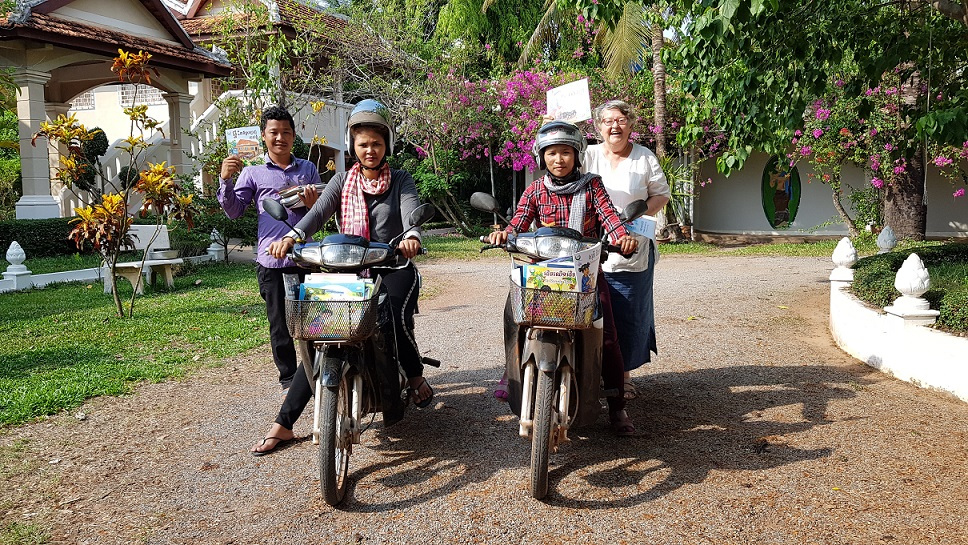 Cambodia seems to have been spared from the worst health effects of the Covid-19 pandemic with cases remaining at 122 since 12 April, no deaths, and no new cases reported to date. Traffic is getting back to normal and many small shops have reopened. Nonetheless, measures to prevent the spread of the disease are still in place. The Jesuit Service Offices in Cambodia decided on a temporary lockdown for nearly a month from 23 March to 19 April.
Cambodia seems to have been spared from the worst health effects of the Covid-19 pandemic with cases remaining at 122 since 12 April, no deaths, and no new cases reported to date. Traffic is getting back to normal and many small shops have reopened. Nonetheless, measures to prevent the spread of the disease are still in place. The Jesuit Service Offices in Cambodia decided on a temporary lockdown for nearly a month from 23 March to 19 April.
“The government has done very well and are quite organised at the local level both during the quarantine and in moving out with help packs for poor communities,” shares Jesuit Refugee Service Cambodia Director Sr Denise Coghlan RSM. “There seems to be no outbreak of Covid-19 but everybody is suffering from the heat wave!”
Despite the relatively positive health scenario, Cambodia, like other countries, is not immune to the economic and social fallout of the pandemic. Current estimates put Cambodia’s workforce at 10 million. The tourism industry is very badly hit and some 630,000 people in the industry have been affected. The country’s garment and footwear industry is expecting a drop of 50 to 60 per cent in its export products as foreign markets and transportation facilities need time to reopen and normalise. The construction sector has also reeled with the loss of 90,000 workers out of its 300,000-strong workforce, according to official figures.
“Because of the immediate impact on employment, we are getting ready for the migration of many unemployed youth back to their villages. We will try to keep them involved in agriculture once again,” says Br Noel Oliver SJ, who works closely with the Karuna Battambang Organization (KBO), the caritas of the Prefecture of Battambang, whose Chairman is the Apostolic Prefect, Bishop Kike Figaredo SJ.
“KBO decided that we should not go with handouts to assist people in the villages,” shares Br Oliver. Instead, they are studying and planning with village chiefs and elders how the people can be brought back to agriculture and be paid to do manual work as a way of contributing to the community.

There are about 30 families who live in the Battambang dumpsite. Every day they wade through rubbish collecting scrap metal and plastic to sell. Because of the pandemic, the recycling companies have stopped buying recyclables and the families have been left without their only source of income. KBO extended vital help to them, providing rice, non-perishable food, and hygiene materials, besides giving specific precautions against Covid-19.
In Sisophon, Banteay Meanchey, one of the poorest provinces in Cambodia where the Jesuits run Xavier Jesuit School (XJS), closures and lockdowns are also having a devastating impact on employment. Many of the parents and guardians of their students work either outside the province or in Thailand, and most have become unemployed.
“An extension of the lockdowns puts the vulnerable in danger because of the lack of food and income, and exposes them to a greater risk of falling prey to the virus because of unmonitored movements. They could also suffer from potential psychosocial issues caused by anxiety and stress,” cautions XJS Director Fr Quyen Vu SJ.
Schools have been closed since 16 March and although there have been no new Covid-19 cases in the last three weeks, the reopening of schools and the lifting of community lockdowns have been put on hold.

To respond to the crisis, XJS distributed 100 emergency food packages worth $15 each. It would help keep a family of five food secure for about 10 days. The school is also providing income-generating opportunities to families by commissioning them to sew 1,000 masks, which will be distributed to the school children when schools reopen.
JRS Cambodia is likewise actively working in Sisophon, particularly for the nearly 700 left behind children, whose migrant worker parents have yet to return from Thailand. The children are in the care of their grandmothers or other relatives.
“The big wish of the children is for schools to reopen,” shares Sr Coghlan. “Our social worker/teacher is visiting and giving home schooling to individuals to keep them cheered up and still learning.”
Besides children, the current crisis has also left refugees and migrants more vulnerable than ever. In Phnom Penh, JRS hired extra rooms for indigenous Montagnards to ensure proper distancing. They have also arranged extra food supplies in case access becomes prohibited. Extra soaps have been distributed to underline the importance of hygiene and temporary income support grants have been provided. JRS staff visited every refugee upon the request of the Cambodian police, and on 1 May, they received permission to resume teaching activities for refugees in detention.

In Siem Reap, flights are intermittently returning. Migrant workers who have returned home are now reunited with their families after two weeks of mandatory quarantine. The JRS team is helping them maintain some source of income or food security through home gardens and poultry raising. JRS has also set up new library posts, where children can borrow books to read at home, and given them “kid packs” for home activities. In the area of sanitation and health, JRS is building 15 more toilets, and handed out soaps and posters in Khmer on sanitation.
Amid the economic difficulties, JRS Cambodia hopes to spread joy and good mood in the villages. “Our observation is that Cambodians are used to living very simply and day-to-day in rural areas,” says Sr Coghlan. She notes that in all crises the poor suffer the most, but that is expected given the current economic system.
Originally from Australia, Sr Coghlan, who just turned 80 on 1 May, has served in Cambodia for over three decades. She recognises the inspiring resilience of the Cambodian people who have suffered much trauma from the regime of the Khmer Rouge. The Covid-19 pandemic has brought forth their resilience anew.

